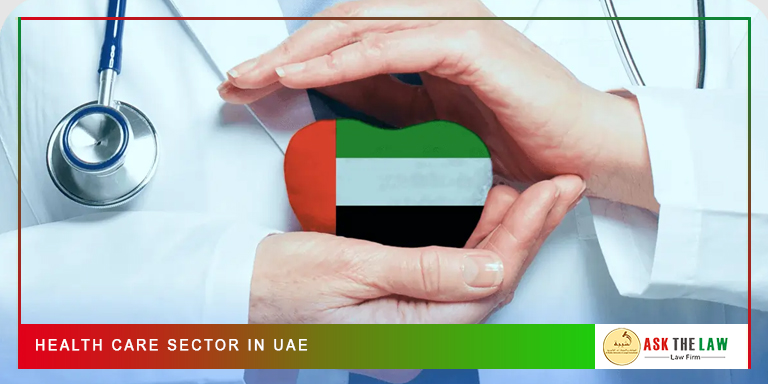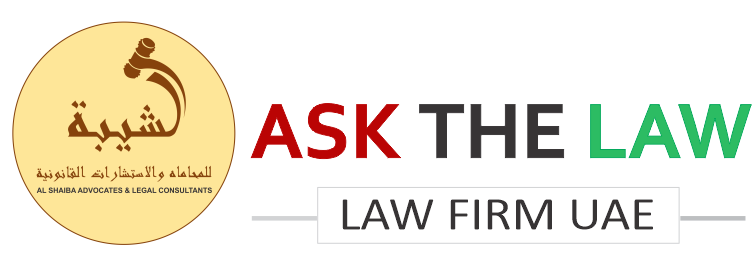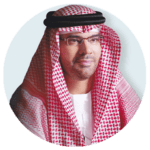
Health Care Sector in UAE: Physician and Non-Physician Professionals
The healthcare sector is always vast and complicated because of a diverse range of professionals in this sector. The system of the healthcare sector requires collaborations and partnerships to flourish. This is necessary to ensure the premium quality of healthcare services and delivery of prompt care and support. The healthcare industry comprises physicians, medical practitioners, medical professionals, and pharmacists. But, center of attention lies with medical professionals e.g. doctors, physicians, surgeons, medical practitioners, and others.
However, non-physician practitioners and professionals are equally essential parts of the healthcare industry. A lot of efforts have been made to promote and expand the healthcare industry. The healthcare industry is the backbone of an economy. Today, the world has understood its significance and also acknowledges the need for self-reliance. Therefore, they made investments, regulations, and laws to support the local healthcare sector.
Physicians, Non-Physicians and Pharmacists
Physicians and pharmacists are central to the functioning of the modern healthcare system in UAE. The professionals in this industry range from nurses, paramedic staff, physiotherapists, medical technicians, medical technologists, nutritionists, dietitians, and others. They play an integral role in the proper functioning of healthcare services. They play a critical part in patients’ care, diagnosis, treatments, recovery and much more.
Healthcare industry is expanding over time. The practice of medical professionals is now incomplete without the role of non-physicians, and non-pharmacists. As technological advancements take place, the roles of medical professionals have extended.
Technology in Industry
With the latest technology being introduced, there has been an evolution in the healthcare industry. Besides, the sector has witnessed changes in diseases, patterns, requirements, and needs of the roles. This has surged the need for non-physician professionals in the sector.
The incorporation of non-physicians into the healthcare system is in the need of the hour. It offers numerous benefits to all the stakeholders in the healthcare sector. With their entry, there is an improved accessibility of top-quality service. It provides quick delivery of care to patients in remote and rural areas. Besides, the non-physician professionals improve access to the underserved locations. Overall, it reduces the disparities in access to healthcare services.
Demand
The non-physician professionals are highly in demand for routine and preventive care services. This reduces the burden on healthcare facilities. Besides, it also reduces the costs without affecting the quality of service.
Specialized Non-Physician
The specialized non-physician professionals contribute to the comprehensive healthcare system. They address a diverse range of health requirements. It also improves the outcomes.
Some of the non-physicians medical professionals include nurses, Physiotherapists, physiologists, medical laboratory staff, medical technologists, Radiologists, Imaging Technicians, Dietitians, Nutritionists, occupational therapists, Paramedics staff, Emergency Medical Technicians (EMTs), and more. Some of the factors that directly impact the roles of healthcare professionals include as:
The changing trends have experienced a dynamic increase in the demand for healthcare services in UAE. As the world population trends are evolving the requirements of healthcare professionals have also changed. There has been an aging population all around the world.
This aging global population contributes to the rise in the prevalence of chronic diseases and the need for top-notch quality and delivery of healthcare services. This leads to an increase in demand for specialized, professional, and highly skilled healthcare staff.
Additionally, the use of non-physician healthcare has also witnessed a hike. Healthcare provided requires non-physician staff to bridge the gaps in the healthcare sector. They are required for quick service delivery and to fill the accessible gaps in remote and underserved locations.
Several non-physician medical professionals and practitioners have to undergo rigorous training along with a license and certification before actively taking part. The specialized training, licensing, and certifications have increased their credibility, reliability, and worth. This enables them to provide useful care and support to the healthcare facilities.
Additionally, nurse practitioners NP and physician assistants PA also require qualifications and licensing before they enter this field. They qualify to diagnose the treatments, illness, and diseases alongside the professional’s physicians.
Collaborations are needed in the modern world and thus, the modern healthcare system heavily relies upon it. The emphasis is placed on partnerships and collaborations among physicians, and non-physician professionals. They overall contribute to the patient-centered care plans.
This is a pragmatic approach toward the illness, diagnosis, treatment, and disease. This assists in addressing the overall physical, emotional, mental, and social health specifications.
Legal Framework and Regulations
The regulatory framework governs the strict regulations for non-physician professionals. It is necessary for the safety, on-time delivery, and quality of healthcare services. There are some considerations that are mandatory to enter this profession. It includes the key aspect like licensing. The non-physician professionals require obtaining licensing from the relevant authorities before practice.
Regulatory Bodies
There are proper regulatory bodies that issue licenses to professionals. This is an essential ingredient to demonstrate qualification and adherence to ethical standards. Besides, continuous education is also required by the legal framework to maintain licensure.
Secondly, the scope of the practice is identified. Every profession has established its scope and nature of practice. They also provide details about the tasks. The scope of the work also figures out the responsibilities of the non-physician which they are authorized to perform. Anyone who deviates from the predefined scope of practice will face serious legal consequences.
Supervision and Collaboration
Supervision and collaboration play a significant role. There are specific professionals and whom supervision is required. For instance, physician assistants may need supervision by a licensed and authorized physician. Collaborations and partnerships are often done in this profession. The extent of the scope also impacts the autonomy and oversight of healthcare services.
Thirdly, ethical considerations for non-physician professionals are integral. They are bound by the ethical codes and standards to remain within their specification. The priority is given to patient welfare, patient well-being, confidentiality, and professional integrity. With the non-physician practitioner, there has been a reduced workload among physicians.
Shortage of Skilled Physicians
The shortage of skilled physicians can also be dealt with. Any disruption and shortage of supply can be fulfilled. With seamless nitration and collaborations in different disciplines, this will immensely contribute to the healthcare sector. With communication and partnerships, the teams can be made with the inclusion of physicians and non-physicians
Mobility
Non-physician practitioners have better mobility which makes them highly flexible. Nonetheless, the role of non-physician medical professionals is constantly expanding. They are becoming indispensable to the modern-day healthcare industry. These well-qualified and licensed professionals bring in quality, prompt delivery, skills, improved accessibility, and much more. It gives holistic patient care to the existing healthcare infrastructure.


